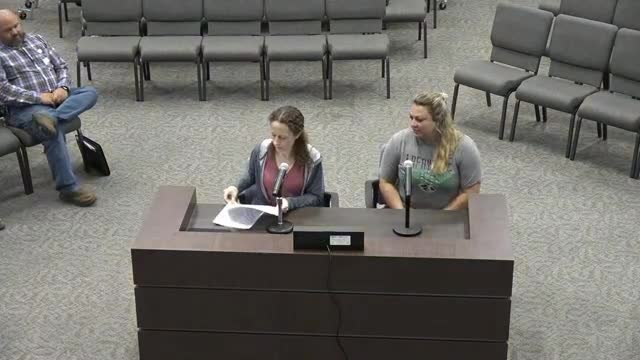School Board Grapples with Confusing Cell Phone Policy
July 20, 2024 | Lafayette Parish, School Boards, Louisiana

This article was created by AI summarizing key points discussed. AI makes mistakes, so for full details and context, please refer to the video of the full meeting. Please report any errors so we can fix them. Report an error »

During a recent school board meeting, significant discussions centered around the new state legislation regarding the use of electronic devices in schools, particularly cell phones. Parents and educators expressed concerns about the implications of the law, which prohibits students from possessing electronic telecommunication devices during the instructional day, defined as the time from the first bell to the last dismissal bell.
One parent highlighted the confusion surrounding whether electronic devices are allowed on school buses, especially during emergencies. She recounted a personal experience where her daughter was unable to contact her during a multi-hour lockdown, prompting her to provide her daughter with a cell phone for safety reasons. This concern was echoed by Laurie Larpiner, a teacher and parent, who sought clarification on the specifics of the policy, particularly regarding the use of phones during lunch and other non-instructional times.
Legal interpretations of the new law were also discussed. Mr. Hammonds, a board member, explained that the legislation is somewhat contradictory, stating that while students cannot possess phones during the instructional day, there are provisions that suggest they may be allowed if turned off and stowed away. This ambiguity has led to confusion about enforcement and compliance, particularly regarding students' behavior on school buses.
The board acknowledged the challenges of monitoring cell phone use, especially in areas like restrooms where supervision is limited. They emphasized the need for a clear policy that balances the law's requirements with practical considerations for student safety and communication.
As the board continues to navigate these complexities, they aim to implement a policy that encourages self-restraint among students while adhering to state regulations. The discussions reflect a broader concern about the role of technology in education and the need for clear guidelines that support both student safety and effective learning environments.
One parent highlighted the confusion surrounding whether electronic devices are allowed on school buses, especially during emergencies. She recounted a personal experience where her daughter was unable to contact her during a multi-hour lockdown, prompting her to provide her daughter with a cell phone for safety reasons. This concern was echoed by Laurie Larpiner, a teacher and parent, who sought clarification on the specifics of the policy, particularly regarding the use of phones during lunch and other non-instructional times.
Legal interpretations of the new law were also discussed. Mr. Hammonds, a board member, explained that the legislation is somewhat contradictory, stating that while students cannot possess phones during the instructional day, there are provisions that suggest they may be allowed if turned off and stowed away. This ambiguity has led to confusion about enforcement and compliance, particularly regarding students' behavior on school buses.
The board acknowledged the challenges of monitoring cell phone use, especially in areas like restrooms where supervision is limited. They emphasized the need for a clear policy that balances the law's requirements with practical considerations for student safety and communication.
As the board continues to navigate these complexities, they aim to implement a policy that encourages self-restraint among students while adhering to state regulations. The discussions reflect a broader concern about the role of technology in education and the need for clear guidelines that support both student safety and effective learning environments.
View full meeting
This article is based on a recent meeting—watch the full video and explore the complete transcript for deeper insights into the discussion.
View full meeting
